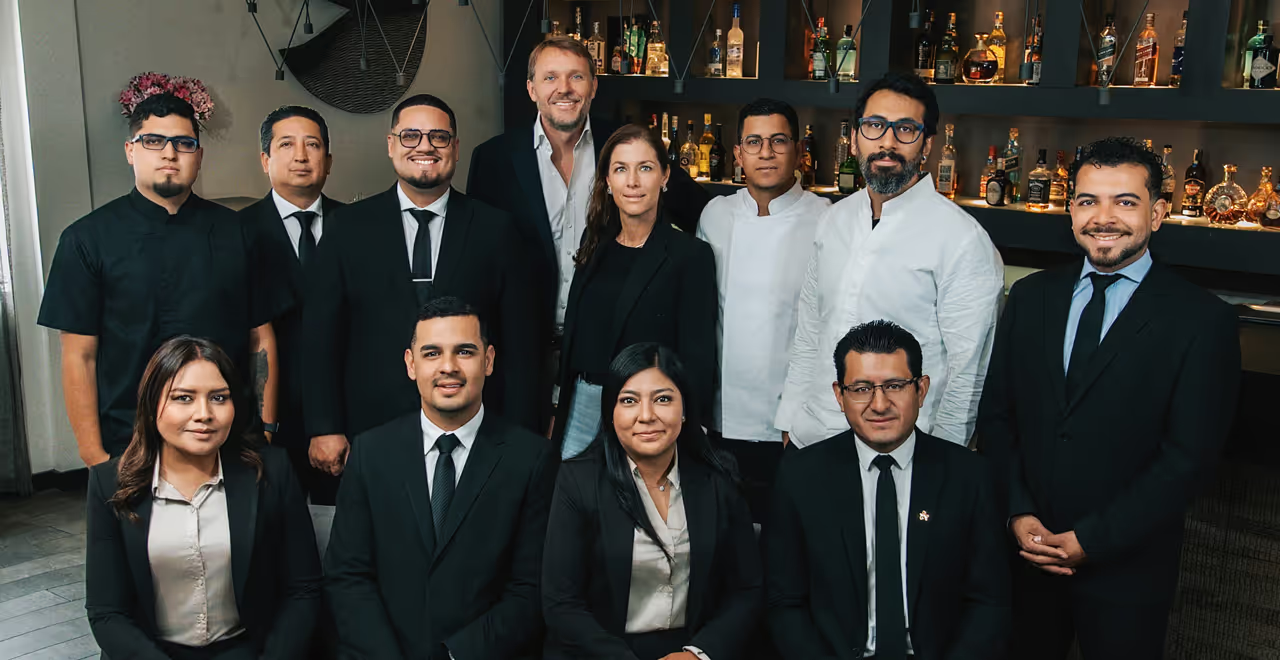Lifetime Achievement Award
GRUPO Z

It might sound ironic to speak of “trajectory” when Grupo Z is still very much in the thick of the present. Jan Niedrau can hardly sit still he’s already plotting not one, but three new restaurants even as the group has already filled Quito with eight pitch perfect concepts. The latest, Crezta, bills itself as haute cuisine street food, something that only really makes sense once you experience it.
The story began two decades ago, when Jan and his Ecuadorian partner Michelle Swoboda were working in the United States, honing their craft in prestigious hotels, most recently in San Francisco. Michelle had the idea: why not start something of their own in Quito? Jan, who didn’t speak a word of Spanish, was game. What they found in 2004 was a city hardly prepared for what they had in mind. Fine dining was conservative, even stuffy restaurants run by stern owners perched behind cash registers, serving traditional fare. But Jan and Michelle had seen the world, and they knew restaurants could be electric, immersive experiences.
They landed at Quito’s old airport then perilously close to downtown avenues determined to take the gamble. The result
was Zazu, a restaurant that introduced Quito to a new vocabulary: tasting menus, a curated wine cellar, an actual bar lounge where diners had cocktails before dinner, and a buzz of service and design that was both international and fresh. With Peruvian chefs at the helm, they tapped into a wave that was beginning to crest across Latin America, and they opened Zazu just as Gastón Acurio launched Astrid & Gastón in the same city. The message was clear: Quito was ready.
For nearly a decade, Jan and Michelle worked hands on Jan often present at tables, despite staff protests that “it didn’t look right for the owner.” But the gamble worked. Quiteños fell in love, and soon Zazu became a benchmark. From there, Grupo Z began to expand, spotting gaps in Quito’s dining landscape and filling them with flair. Zao brought Pan Asian energy, cocktails, and music. Z-Food became the city’s destination for sustainably sourced seafood. Zerdo doubled down on ribs and pulled pork. Zeviche focused on ceviche. Zanto brought fast casual Mexican, and Crezta pushed street food to fine dining heights.
If anyone has transformed Quito’s restaurant culture in practice, it is Grupo Z. Yet their legacy isn’t just about concepts. Jan and Michelle have built a participative business model that empowers chefs and partners as stakeholders, making Grupo Z not just a restaurant group, but a culinary community.
For this first edition of SUMMUM Ecuador, we honor Grupo Z’s vision, innovation, and enduring impact on the country’s dining universe.


